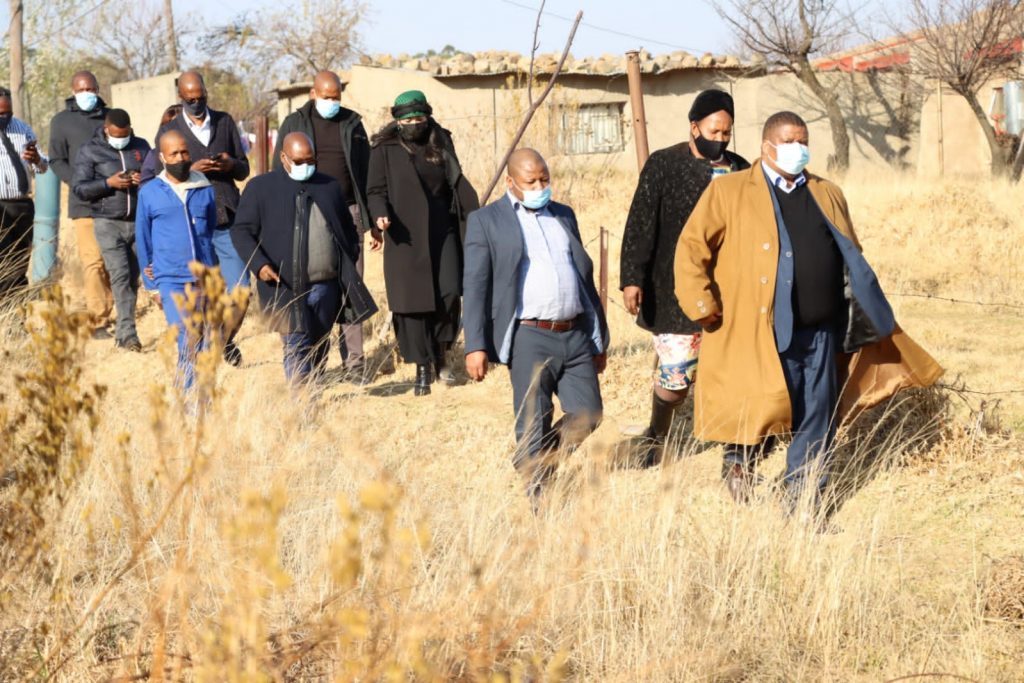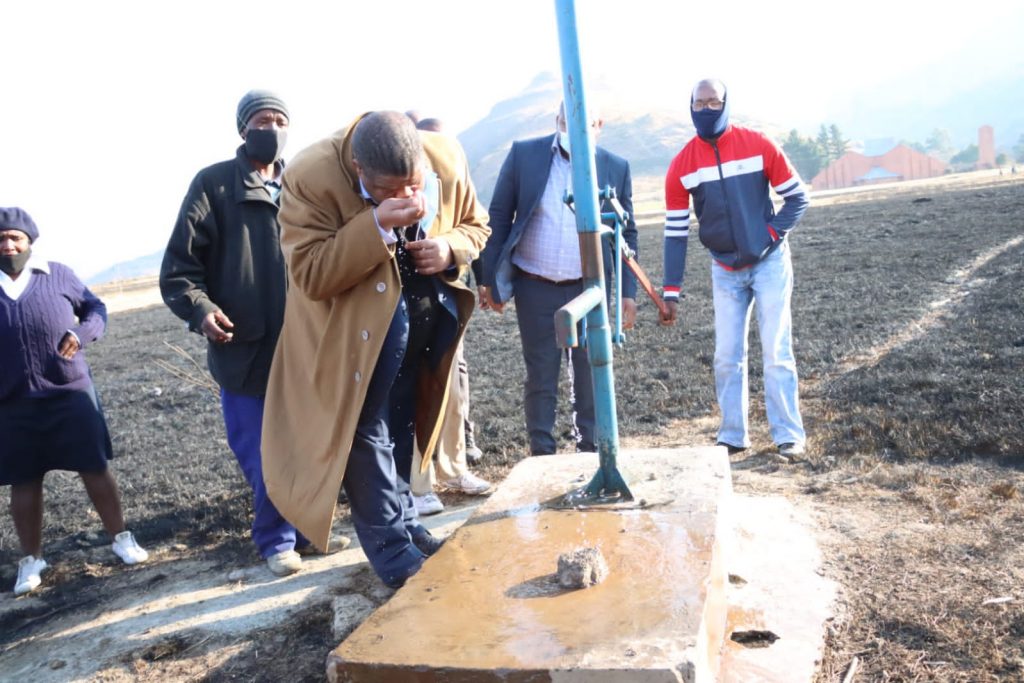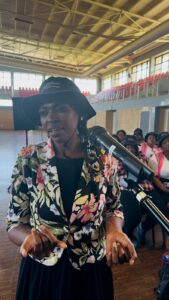By Libuseng Nyaka
Residents of Mabolela in Maluti-a-Phofung still can’t get any water from boreholes erected by Sedibeng Water despite the national department of human settlements, water and sanitation investing R220-million in 2020 to quell the water crisis in the precinct.
Sedibeng Water is a Human Settlements, Water and Sanitation entity which had been deployed in Maluti-a-Phofung to share its skills and capacity to address water problems in collaboration with a local water entity Map Water.
During a visit to monitor progress of this intervention, Deputy Minister of Human Settlements, Water and Sanitation, David Mahlobo, expressed disappointment at the lack of accountability and poor handling of infrastructure meant to address water shortage in Maluti-a-Phofung Local Municipality.
During his engagement with the residents of Mabolela where one of 60 boreholes has been erected, Mahlobo , lamented the state of the borehole which is fenced in an unkempt area surrounded by long grass with a rusty locked gate, a clear indication that it hasn’t been visited or opened in months.
Apart from the local leadership, the deputy minister was accompanied by deputy minister of cooperative and traditional affairs (Cogta) Obed Bapela, MEC of Economic, small business development, tourism and environmental affairs who is also Acting Premier Makalo Mohale, Finance MEC Gadija Brown, Health MEC Montseng Tsiu and Public Works and Human Settlements MEC Tshidi Koloi.

“You know, it is better that the Deputy President did come today. The look of this place is not okay, in terms of maintenance. You could see that they do not maintain the place. If you cannot clean the place, how do we know that this borehole is working. Here people can see, it has been a long time since it was opened. Can you open the gate, I want to go through,” asked Mahlobo as he stared at the rusty locked gate.
Jabu Malungane, the engineer from Map Water could not open the gate, as he had no keys, despite agreeing to lead the delegation to the borehole as part of monitoring.
“I am on a site visit, what message must I take back when I could not even access the borehole? I must test the water,” Mahlobo said after he could not access the borehole.
“You must tell us how much water is kept here, what is the quality and when was the last time you tested the water. When do you pump this water? How many volumes, which villages do you deal with, and which villages do not get water? Then your story becomes complete. What I see here is evidence that this place has not been opened for many months,” said Mahlobo.
His theory that the borehole was not in use was confirmed by residents who came rushing when they saw a convey of government vehicles.
“He (the engineer) is lying; this borehole does not work and that’s why he cannot even open the gate for you to see. We have even contributed money and erected a borehole there, but unfortunately water that comes out of it is contaminated,” complained one of the residents after Mahlobo had outlined the purpose of his visit.
Another resident told Mahlobo about the problem of regular power cuts and lack of follow up by municipality officers who do not respond even when such cases are reported.
Another person that Mahlobo was displeased with is the Member of the Mayoral Committee responsible for electricity and infrastructure, Ditabe Nhlapo, who failed to respond convincingly to issues related to his department, such as municipal assets.

“Deputy Minister, I am not sure; I will verify.” This wishy-washy answer did not sit well with Mahlobo, who gave the MMC some ticking off. “Comrade, your problem is you do not have your fingers on the pulse. If Comrade MMC you do not know how many children you have, how will you take care of them?”
During an update on the implementation of commitments related to water infrastructure in the absence of Deputy President David Mabuza, Mahlobo briefed the meeting at Sterkfontein on Saturday June 19, and identified as major cause of lack of water in area as networks that run in isolation and lack of access to the local dam.
“To guarantee that water will always be available, you must have access to Sterkfontein Dam. Number two, you must increase the capacity to treat the water. Then there is a point you must solve, the network systems around Maluti-a-Phofung operate in isolation. All the interventions that must be done around the networks now to connect the system, must try to link the system. We must increase the capacity to treat the water from 10 megalitres to 20. This is what the plant is supposed to be doing here.”
According to Mahlobo, boreholes were just a short term measure. Unfortunately, some of them have been vandalized while others have had their components stolen.






More Stories
Thabo Mofutsanyana District Municipality Public Notice
Clarens community holds on amid LHWP maintenance
‘Childcare a responsibility of both parents’